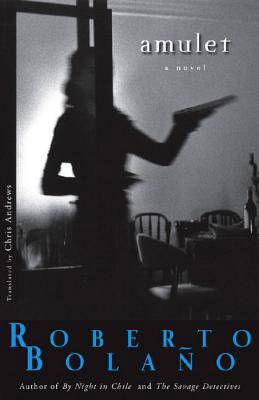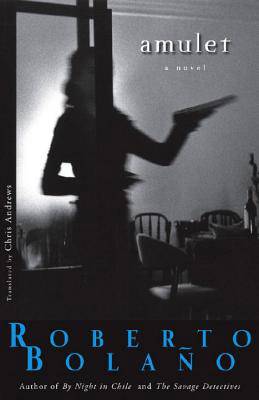
- Afhalen na 1 uur in een winkel met voorraad
- Gratis thuislevering in België vanaf € 30
- Ruim aanbod met 7 miljoen producten
- Afhalen na 1 uur in een winkel met voorraad
- Gratis thuislevering in België vanaf € 30
- Ruim aanbod met 7 miljoen producten
Zoeken
Omschrijving
Amulet is a monologue, like Bolano's acclaimed debut in English, By Night in Chile. The speaker is Auxilio Lacouture, a Uruguayan woman who moved to Mexico in the 1960s, becoming the "Mother of Mexican Poetry," hanging out with the young poets in the cafés and bars of the University. She's tall, thin, and blonde, and her favorite young poet in the 1970s is none other than Arturo Belano (Bolano's fictional stand-in throughout his books).
As well as her young poets, Auxilio recalls three remarkable women: the melancholic young philosopher Elena, the exiled Catalan painter Remedios Varo, and Lilian Serpas, a poet who once slept with Che Guevara. And in the course of her imaginary visit to the house of Remedios Varo, Auxilio sees an uncanny landscape, a kind of chasm. This chasm reappears in a vision at the end of the book: an army of children is marching toward it, singing as they go. The children are the idealistic young Latin Americans who came to maturity in the '70s, and the last words of the novel are: "And that song is our amulet."
As well as her young poets, Auxilio recalls three remarkable women: the melancholic young philosopher Elena, the exiled Catalan painter Remedios Varo, and Lilian Serpas, a poet who once slept with Che Guevara. And in the course of her imaginary visit to the house of Remedios Varo, Auxilio sees an uncanny landscape, a kind of chasm. This chasm reappears in a vision at the end of the book: an army of children is marching toward it, singing as they go. The children are the idealistic young Latin Americans who came to maturity in the '70s, and the last words of the novel are: "And that song is our amulet."
Specificaties
Betrokkenen
- Auteur(s):
- Vertaler(s):
- Uitgeverij:
Inhoud
- Aantal bladzijden:
- 192
- Taal:
- Engels
Eigenschappen
- Productcode (EAN):
- 9780811217460
- Verschijningsdatum:
- 1/05/2008
- Uitvoering:
- Paperback
- Formaat:
- Trade paperback (VS)
- Afmetingen:
- 135 mm x 204 mm
- Gewicht:
- 226 g

Alleen bij Standaard Boekhandel
+ 47 punten op je klantenkaart van Standaard Boekhandel
Beoordelingen
We publiceren alleen reviews die voldoen aan de voorwaarden voor reviews. Bekijk onze voorwaarden voor reviews.











